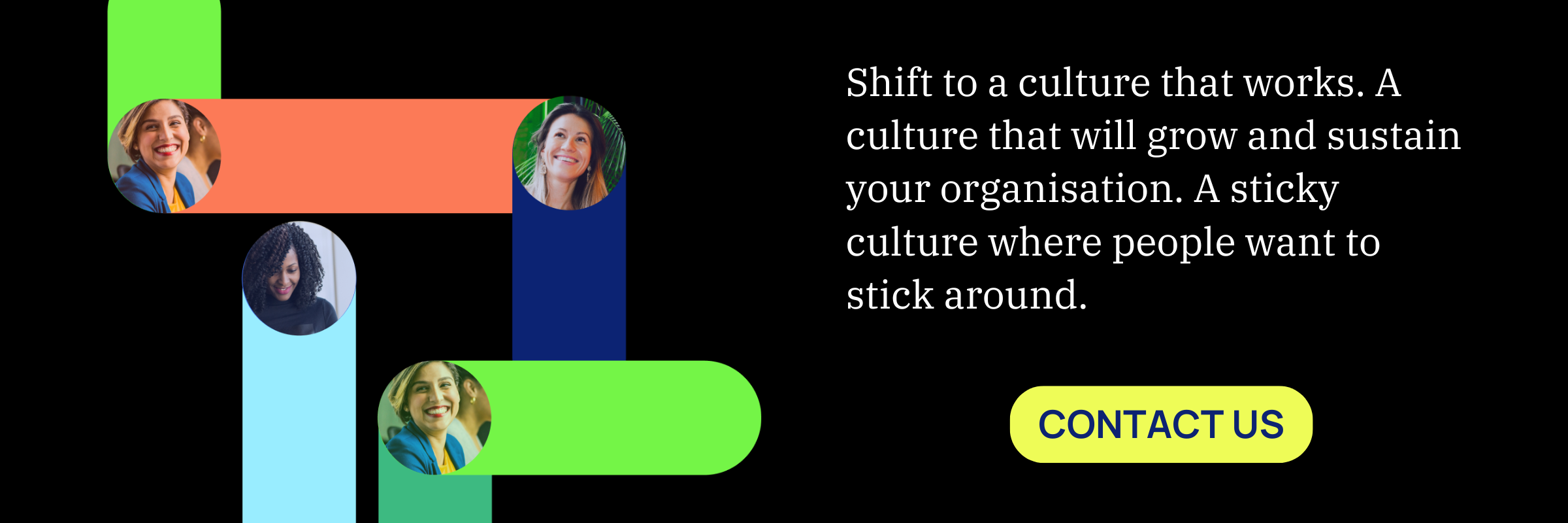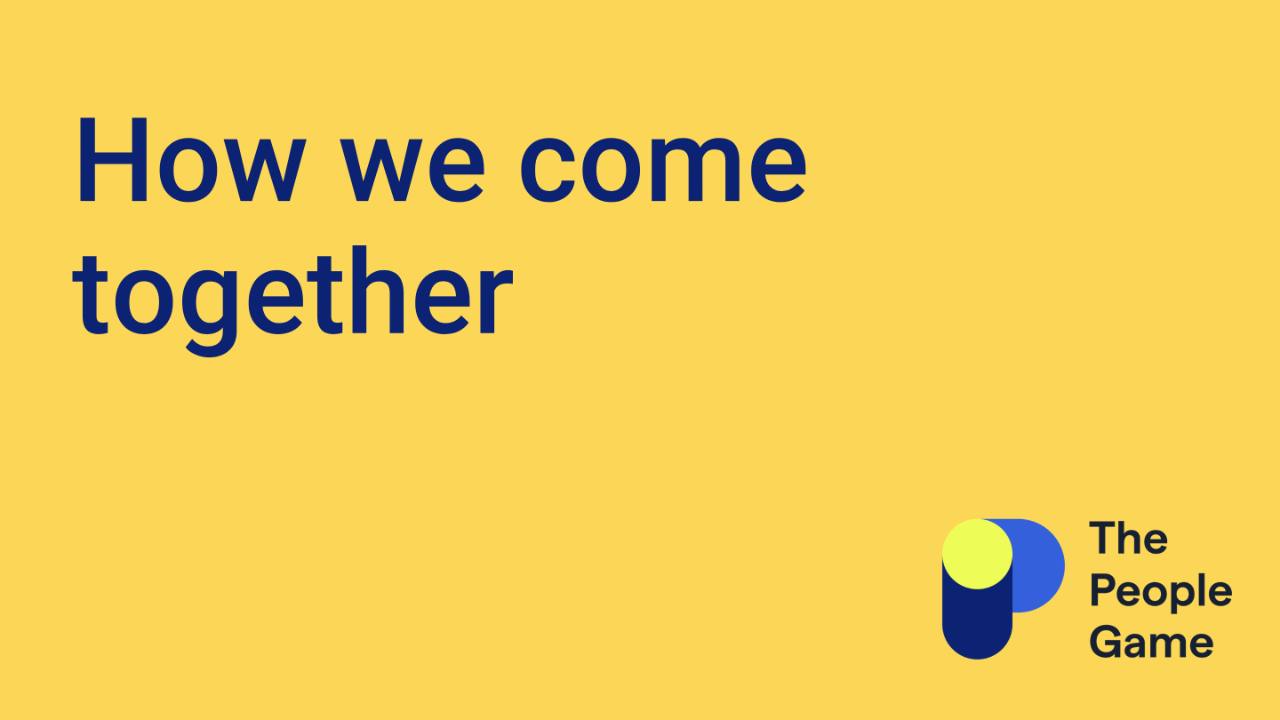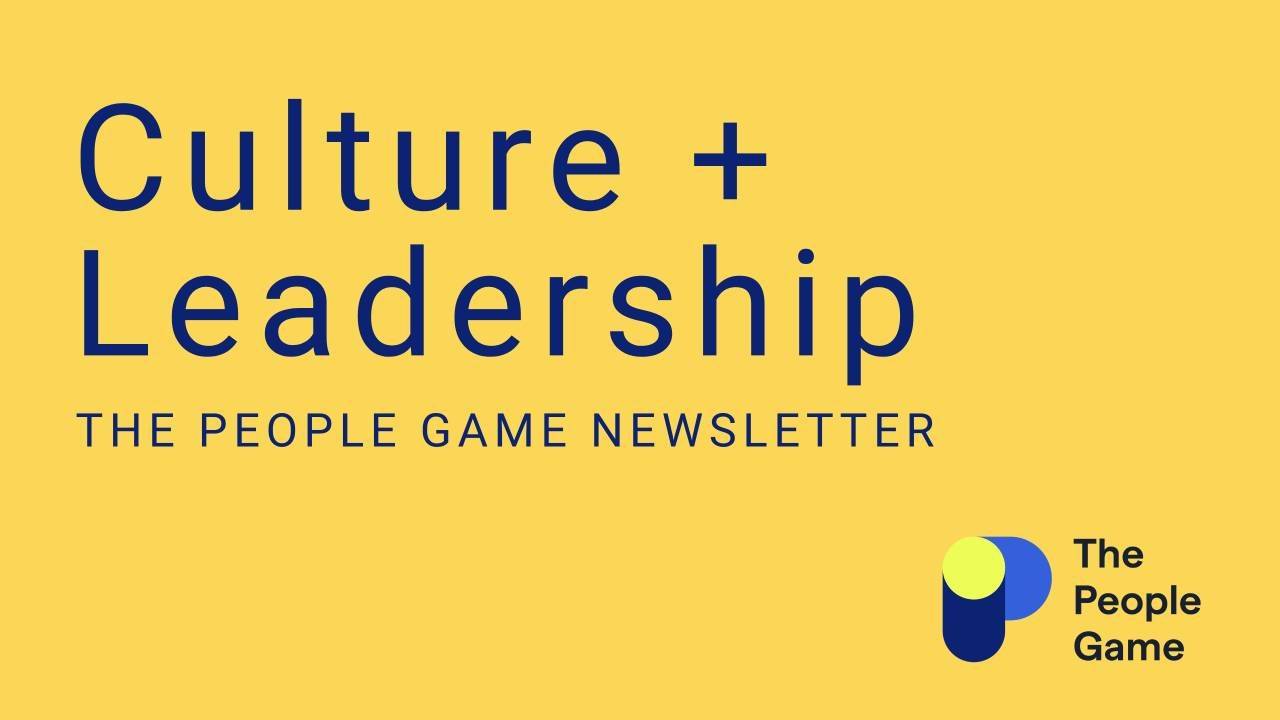Building Trust: The Cornerstone of Successful Teams

When it comes to team dynamics, trust isn't just an ingredient; it’s the main course. Trust is the bedrock upon which successful teams are built, driving collaboration, innovation, and resilience. At The People Game, we understand that trust doesn’t magically appear—it’s cultivated through consistent actions and behaviours.
Let's dive into the significance of trust within teams and explore practical ways to build and strengthen it, both one-on-one and across the entire team.
The Importance of Trust in Teams
Trust is the invisible glue that holds teams together. It fosters open communication, encourages risk-taking, and enhances collaboration. Without trust, teams can quickly become fragmented, leading to miscommunication, low morale, and poor performance. Research consistently shows that high-trust organisations outperform low-trust ones, highlighting the tangible benefits of fostering trust.
1. Leading by Example
Trust begins at the top. Leaders set the tone for the entire team. When leaders demonstrate integrity, transparency, and reliability, they create a culture where trust can flourish.
Shift: Be consistent in your actions and words. Follow through on commitments and be transparent about decisions. When leaders model trustworthiness, it sets a powerful example for the team.
2. Open and Honest Communication
Clear, honest communication is the foundation of trust. When team members feel informed and heard, trust naturally follows.
Shift: Encourage open dialogue. Hold regular check-ins and create spaces where team members can voice concerns and share ideas without fear of retribution. Active listening and empathetic responses go a long way in building trust.
3. Foster Psychological Safety
A team that feels safe to express ideas, take risks, and make mistakes without fear of judgement is a high-trust team. Psychological safety is crucial for innovation and growth.
Shift: Create an environment where vulnerability is seen as a strength. Celebrate diverse perspectives and make it clear that mistakes are part of the learning process. Encourage team members to support one another and offer constructive feedback.
4. Show Appreciation and Recognition
Acknowledging contributions and showing appreciation reinforces trust and boosts morale. When team members feel valued, they are more likely to trust their leaders and peers.
Shift: Regularly recognise individual and team achievements, both big and small. Personalised thank-you notes, shout-outs during meetings, and tangible rewards can make a significant impact.
5. Build Personal Connections
Trust isn’t just a professional construct; it’s deeply personal. Building personal connections among team members fosters a sense of belonging and mutual respect.
Shift: Encourage team-building activities and informal gatherings. Simple gestures like celebrating birthdays, sharing meals, or engaging in team-building exercises can strengthen bonds and build trust.
6. Encourage Collaboration and Teamwork
Trust thrives in collaborative environments. When team members work together towards common goals, they learn to rely on and trust each other.
Shift: Design projects that require teamwork and collaboration. Encourage cross-functional partnerships and provide opportunities for team members to work on shared objectives. Highlight the successes of collaborative efforts.
7. Address Conflicts Promptly and Fairly
Conflicts are inevitable, but how they are handled can either build or erode trust. Addressing conflicts fairly and promptly demonstrates a commitment to maintaining a healthy, trust-based environment.
Shift: Implement a clear conflict resolution process. Encourage open discussions about disagreements and mediate fairly. Ensure that all voices are heard and that resolutions are transparent and equitable.
8. Be Transparent About Expectations and Goals
Clarity around roles, responsibilities, and expectations reduces uncertainty and builds trust. When team members know what’s expected of them and where they are headed, trust in leadership and the team’s direction increases.
Shift: Clearly communicate goals, roles, and expectations. Use tools like project management software to keep everyone on the same page. Regularly update the team on progress and changes.
9. Provide Support and Resources
Supporting your team with the necessary resources, training, and support is crucial for building trust. When team members feel equipped to do their jobs well, trust in leadership and the organisation grows.
Shift: Invest in professional development and provide the tools needed for success. Offer regular training sessions, access to resources, and support networks. Show your team that you are invested in their growth and success.
10. Lead with Empathy and Compassion
Empathy and compassion in leadership create a supportive and trusting environment. When leaders show they care about their team’s well-being, trust is nurtured.
Shift: Practice empathetic leadership. Show genuine interest in your team members’ lives and well-being. Be understanding and flexible when team members face personal challenges.
The Bottom Line
Trust is the cornerstone of any successful team. By implementing these shifts, you can build a high-trust environment where team members feel valued, supported, and empowered to do their best work. At The People Game, we’re fall about fostering cultures that thrive on trust and collaboration.
Further Reading
- The Five Dysfunctions of a Team by Patrick Lencioni. A deep dive into the common pitfalls of team dynamics and how to overcome them.
- Dare to Lead by Brené Brown. Exploring the power of vulnerability and courage in leadership.
- Leaders Eat Last by Simon Sinek. Insights on building trust and creating environments where teams can thrive.
Executive Teams: PACT
Off the back of a big few years, many leadership teams need a reset.
Our PACT program focuses on Partnering, Alignment, Cohesion and Trust. It includes 4 workshops and 4 coaching sessions for each member of the ELT.
Ask us about running this program with your team.
The People Game







Responses